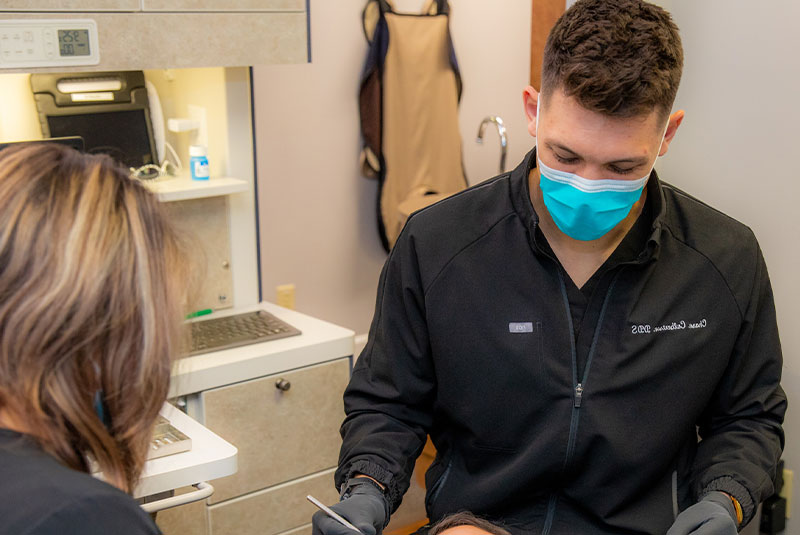
The Reason Behind Chronic Halitosis
Occasional bad breath after eating a spicy or garlicky meal is normal and can generally be combatted with breath mints or brushing your teeth. But if your bad breath is constant (halitosis) and accompanied by gums that bleed easily, a bad taste in your mouth, sensitive or loose teeth, and gum recession, the cause may be something more ominous—gum disease. This condition develops when plaque on the teeth from food debris is left to harden into tartar.
The bacteria released causes the gum tissues to become infected and inflamed, and eventually pull away from the teeth. Your chronic bad breath is a result of these bacteria breaking down proteins that release volatile sulfur compounds (VSCs) into your breath. Our team at Woodlawn Dental Center can treat your bad breath in Cambridge, Oh by undergoing customized gum disease treatment to eliminate bacteria and infection and restore proper health to your mouth.

Is Gum Disease Treatment Necessary?
You may be wondering why there isn’t a simple fix for your chronic bad breath instead of needing specialized treatment. This is because gum disease is a dangerous progressive condition that will continue to worsen without interventional procedures. Your bad breath, though a cause of concern and embarrassment now, may become the least of your worries as the infection begins to degrade your gum tissue and bone. Eventually, untreated gum disease will result in tooth loss, compromise your immune system, and aggravate existing medical conditions such as diabetes, high blood pressure, and cardiovascular disease. Advanced cases of gum disease in Cambridge, Oh have even been linked to heart attack and stroke!

Benefiting from Gum Disease Therapy
- Resolve chronic bad breath
- Eliminate bacteria and infection
- Protect healthy gums and bone
- Preserve remaining teeth
- Improve oral and overall health
Selective Treatments for Gum Disease
Many treatments exist that eradicate bacteria and infection from your mouth and resolve halitosis. You may need one or more of these procedures combined to effectively treat your gum disease, which may also include antimicrobial medications and oral antibiotics to control bacteria. Common gum disease treatments include:
Scaling and Root Planing
Osseous Surgery
Periodontal Maintenance


